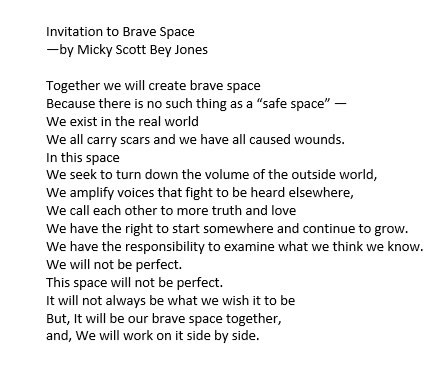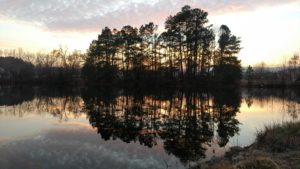Hurdles to being in community feel to be growing more insurmountable as our rhythms of life are destabilized and various risks grow throughout all levels of our community. As these risks grow beyond what we can control, feelings of helplessness, fear and self-protection can well up and take over our desire to build community and connection.
- The threat of global pandemic becomes personal through social isolation, institutional closures, and our ability to care for ourselves becomes more difficult when the supplies we are accustomed to purchasing (food, TP, and cleaning supplies) are now limited commodities
- For our friends and neighbors that make their livings by the hour or in service economies are at risk from their employers shutting down
- Our friends who own small businesses are at risk if they cannot make ends meet due to a reduction of sales
- Our local food system and local farmers who have been at risk for along time in America are now under further pressure due to a reduction in demand from the restaurants they service
- The immunocompromised in our community not only are at risk by the virus, but are at risk by social isolation itself
We live in a time that that is described as “connected” in ways that no generation has experienced before, yet the experiences of loneliness and isolation seem to be at an all-time high. Some studies suggest that loneliness can increase our chance of premature death by as much as 30%.
I look for ways to make space to replace isolation with community. Listening is a critical spiritual and community building practice to break through our walls of isolation when we feel helpless and fearful over the hurdles we see before us. ‘An Other Kingdom’ by Peter Block, Walter Brueggemann and John McKnight highlights listening as a practice that orients our thinking toward beliefs in neighborliness and community. An Other Kingdom explores practices that create conditions for producing a social re-ordering from a consumer ideology toward a belief in neighborliness and where we can experience community differently.
“The practice of listening brings people together. It reminds us that we are not alone. When people gather, the right questions bring the sacred into the room-questions of connections, not opinions. If you bring questions of depth, questions that are personal, the experience of being together shifts. When we ask questions that are an invitation to hear each other, something is created. How do you construct ways to listen to each other?”

Resisting feelings of helplessness and fear that drives us to isolate, especially in the face of a community crisis, requires courage and imagination. Strategically listening is a practice that I participate in with my community so that we can ask powerful questions and create space to be together in a different way. As we check in with each other, we actively look to connect and empathize. We listen for ways that isolation may take root in our loved one’s lives and we seek after the good we desire for ourselves for the sake of our neighbor. Strategically listening allows us to share needs with our community, benefit from our collective wisdom and discover that together that we have enough.
Community is built to the degree that people bring their capacities, gifts, and resources to the table for the common good. One way we do this in my community is through practices of Collaborative Giving and Relational Redistribution. A group of friends in my community has been building a collaborative giving group through Common Change called Emmaus Collaborative Giving Group. We are building capacity to stand in the gap for those who have needs that might otherwise be isolated. While funding our capacity to help our neighbors is needed, generosity does not work unless we actively take responsibility for our neighbors. Merely funding an account is a transaction, not generosity. Collaborative Giving requires members to strategically listen in their neighborhoods and take responsibility for the needs that create isolation.
Our communities need their members to not merely spectate, observe or minimize their interaction to transactional relationships. Now more than ever, our community needs participants and citizens to be good neighbors. We need communities to find imaginative ways to connect and be fully present. A health crisis like this pandemic reveals how all of us are truly vulnerable and how we all need our neighbors to be fully engaged at the community table for the common good.
During this time of social distancing, use your imagination to keep connected:
- Call those in your community to check-in
- Figure out how to bend technology to keep people in community (Zoom Calls, Skype, Facetime)
- Be attentive for how social distancing affects the spirit
- Listen for how feelings are communicated and identify needs
- Acknowledge those feelings and needs to discover if there are ways that your community group can meet the need

